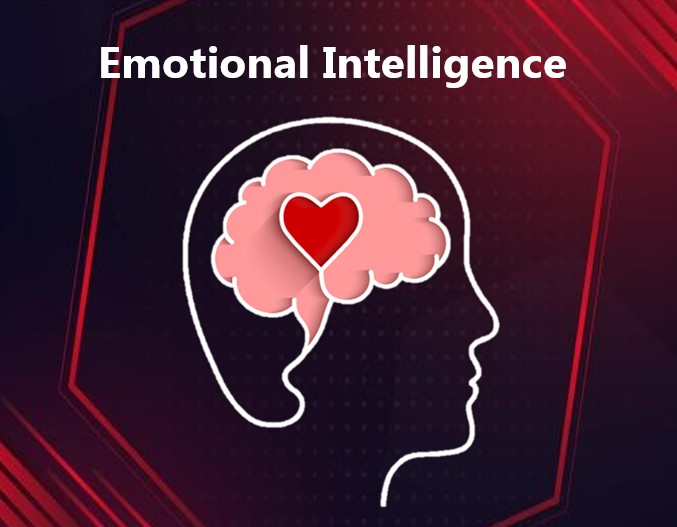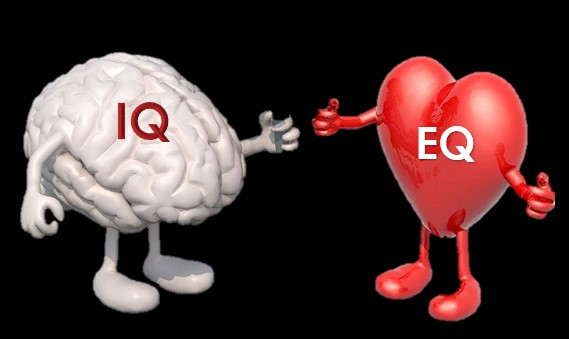
Click here to read this article in Marathi: भावनिक बुद्धिमत्ता
We all know the term IQ, which means intelligence quotient. It is a measurement of your intelligence and is expressed in a number. Have you heard the term emotional intelligence (EI) or emotional quotient (EQ)? It is the ability to understand, use, and manage your own emotions in positive ways.
EQ is considered more important than IQ for overall success in life! For example, your IQ can help you get into college, but it is your EQ that will help you manage stress and emotions when facing your exams. You might have seen some intelligent and academically brilliant people who are unsuccessful at work or in their personal relationships. That is the reason, many companies are requiring EQ testing before hiring. There are number of different assessment tests available to measure the level of emotional intelligence. The test can be administered by a mental health professional. If you have good IQ as well as good EQ, you are going to be very successful in your life!

EQ has following components:
- Self-awareness – the ability to know your emotions, strengths, weaknesses, drives, values and goals. You know how your emotions and actions impact on others, for better or worse. Being self-aware means you are humble!
- Self-regulation – means knowing how to control your emotions, thinking before you act, and knowing the consequences. It also means how to ease tension, manage conflict and cope with difficult situations.
- Social skill – managing relationships to get along with others. It means you know how to develop a rapport with others, using eye contact and being a good listener.
- Empathy – ability to understand where someone is coming from. It is the ability to feel what another person is going through.
- Motivation – means you are motivated and you have a thirst for personal development.

Studies suggest that a high EQ is associated with:
- Good performance at school or work. High emotional intelligence can help you navigate the social complexities of the workplace, lead and motivate others, and excel in your career.
- Good physical health– Uncontrolled stress raises blood pressure, suppresses the immune system, increases the risk of heart attacks and strokes, contributes to infertility, and speeds up the aging process.
- Good mental health– Uncontrolled emotions and stress can impact your mental health, making you vulnerable to anxiety and depression.
- Relationships– The ability to understand and control your emotions and expressing them as well as understanding how others are feeling help in building strong relationships.
- Social intelligence– good EQ helps you to connect other people around you and you feel loved and happy through social communication.
Some people are born with high EQ. It is possible to develop or strengthen it.
People with low EQ:
- Often feel misunderstood
- Get upset easily
- Become overwhelmed by emotions
- Have problems being assertive
- Blaming others for their problems
- Have poor coping skills
- They struggle with relationships
- They behave insensitively
- They always have to be right
People with high EQ:
- Understand the links between their emotions and how they behave
- Remain calm and composed during stressful situations
- Are able to influence others toward a common goal
- Handle difficult people with tact and diplomacy
- Know their strengths and weaknesses
- Have ability to read people
- Are self-confident and open-minded
- Do not hold grudges
You might be interested in knowing how to improve EQ, right?
Tips for improving EQ:
- Your emotions are never wrong. They are there to support you, so be honest about how you feel. When you learn to validate your own feelings, you are better able to validate other’s emotions.
- Listen– The first step is to pay attention what people are trying to tell you. Their words as well as body language will help you understand other people’s feelings.
- Observe how you react to people. A great way to get an accurate gauge of yourself is to keep a diary. Start by writing down what happened to you at the end of every day, how it made you feel and how you dealt with it.
- Examine how you react to stressful situations. Keep your emotions under control when things go wrong.
- Do not rush to judgment before you know all of the facts.
- Take time to understand what motivates you and use it to push you across the finish line.
- Empathize– imagine how you would feel in their situation. Practicing empathy can help you build an emotional understanding.
- Reflect– when you think about why the person is feeling this way, how their emotions are different than your emotions, it will become easier to understand the people.
- Use humor and play to relieve stress. Humor, laughter and play are natural antidotes to stress. They lessen your burdens and help you keep things in perspective. Laughter brings your nervous system into balance, reducing stress, calming you down, sharpening your mind and making you more empathic.
- Take responsibility for your actions. If you hurt someone’s feelings, apologize directly. People are usually more willing to forgive and forget if you make an honest attempt.
- Practice ways to maintain a positive attitude. Do not underestimate the power of your attitude. To keep motivated it is important to maintain a positive and optimistic mindset. Click here: Inspirational quotes.
- Take criticism well. Constructive criticism includes suggestions on how you can improve. Destructive criticisms are mostly personal attacks. Instead of getting offended or defensive, take a few moments to understand where the critique is coming from, and how it can constructively resolve any issues.
- Be approachable. Smile and give off a positive presence.
- Manage your negative emotions. When you’re able to manage and reduce your negative emotions, you’re less likely to get overwhelmed.
- Be mindful of your vocabulary. Words can hurt or heal.
- Try to forgive, forget, and move on rationally.
- Take time to celebrate the positive moments in life.
- Lifelong learning-Both knowledge and information are key for feeding your mind and keeping you curious and motivated.
- Be prepared to leave your comfort zone. Great things can happen to you if you’re willing to leave your comfort zone, so do so as often as you can.
- Avoid being overly critical. Remember that people are only human and have the same motivations (and limitations) as you.
- Learn to live with gratitude. You should recognize the things to be grateful for and try to express gratitude.
- Accept people as they are: Acceptance is a gift that gives back.
- Stop negative self-talk. Most of our negative thoughts are just thoughts, not facts.

Very good article
Thank you, Shrikant!
Iq, Eq emojis superb, perfect also.
Thank you, Jayu!
Really useful article
Thank you!
Great to know! Thank you!
Thank you!
Waw.. never thought of EQ… but definitely it plays big part..
Thank you for sharing! As usual awesome article 👏 👍 👌
Yes, we do not realize its importance. Thank you 🙂
There are so many things I’m unaware of 😬Thanks for spreading awareness around.. simple practice in day to day life brings lot of difference … atleast in my life🤗🤗🤗
I know you have a good IQ as well as EQ:) Enjoy!
Very good and interesting article.. most of us don’t know about this.. really helpful..
Thank you. May I know who is this?
Nicely explained.
How can you improve EQ….”Tips” are a concise edition for personality development book…
🙂
Yes, if everyone follows it, life will be beautiful. Thank you:)
Motivational article…helpful…liked it
Thank you, Geeta:)